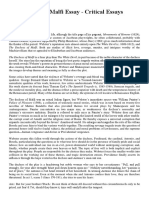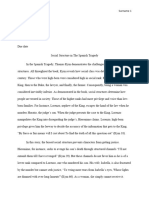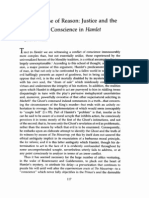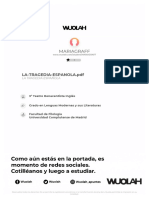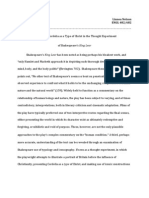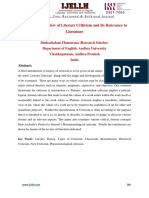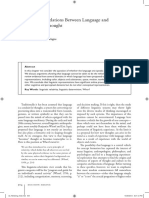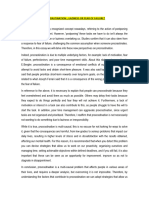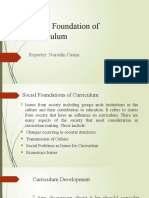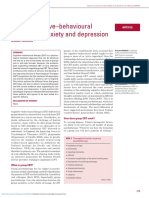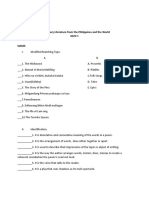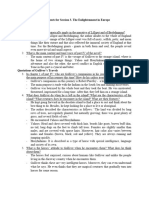0% found this document useful (0 votes)
107 views11 pagesThe Play Explains Itself
The document analyzes Thomas Kyd's play "The Spanish Tragedy." It argues that the play's central theme is not revenge, as previously claimed, but rather the problem of justice. It shows that the play is highly organized around discussions of justice from the beginning, with Andrea's ghost introducing the theme, and characters like Hieronimo dealing with issues of administering justice. The play uses subplots like the events in Portugal to further illustrate problems in achieving justice. It ultimately refutes previous claims that the play lacks focus or that Hieronimo becomes a villain, showing it has a clear and consistent examination of justice as its subject.
Uploaded by
Sara AmmarCopyright
© © All Rights Reserved
We take content rights seriously. If you suspect this is your content, claim it here.
Available Formats
Download as PDF, TXT or read online on Scribd
0% found this document useful (0 votes)
107 views11 pagesThe Play Explains Itself
The document analyzes Thomas Kyd's play "The Spanish Tragedy." It argues that the play's central theme is not revenge, as previously claimed, but rather the problem of justice. It shows that the play is highly organized around discussions of justice from the beginning, with Andrea's ghost introducing the theme, and characters like Hieronimo dealing with issues of administering justice. The play uses subplots like the events in Portugal to further illustrate problems in achieving justice. It ultimately refutes previous claims that the play lacks focus or that Hieronimo becomes a villain, showing it has a clear and consistent examination of justice as its subject.
Uploaded by
Sara AmmarCopyright
© © All Rights Reserved
We take content rights seriously. If you suspect this is your content, claim it here.
Available Formats
Download as PDF, TXT or read online on Scribd
/ 11


















